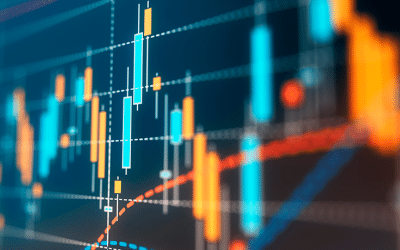The consequences of the Russian attack for the markets and the economy

Redacción Mapfre
War has broken out. The markets had been in a state of tense calm over the last few days after the continuous threats from Russia that provoked the first sanctions by the United States and Europe, but the attacks that began in the early hours of Thursday have sent shockwaves across almost all asset classes. The team from MAPFRE’s investment area and MAPFRE Economics, the Group’s research arm, analyzed the consequences that this armed conflict is going to have for the markets and the economy. Specifically, the following effects can be anticipated:
- Inflation:
Raw materials responded yesterday to the worst-case scenario, the one with "catastrophic consequences" that President Biden had already warned of. Natural gas jumped by more than 30%, to around 115 euros per MW hour, while Brent crude, the benchmark oil price in Europe, broke through the 100-dollar barrier for the first time in eight years, something that will undoubtedly transfer over to an escalation in gas and diesel prices. “This increases inflationary pressure in Europe. Not only that, it makes inflation more structural, since a near-total commercial breakdown is taking place and on top of that, the Nord Stream 2 is blocked”, explains Alberto Matellán, chief economist at MAPFRE Inversión.
This pressure comes at a time when inflation is already at historic levels. According to the latest data from Eurostat, the year-on-year rate in the eurozone stood at 5.1% last January, one tenth above the rise observed in December, which represents the highest increase in prices in the euro region across the entire historical series. In the United States, the Bureau of Labor Statistics reported that inflation rose to 7.5% in January, half a point above that of December’s level, the sharpest such rise since 1982. “The short-term rebound in raw materials, added to new disruptions in global transport as a result of geopolitical dynamics, would result in a prolongation of the persistent effects on global inflation materializing, thereby altering the prospects of an inflation peak throughout 2022 and postponing the forecast of inflation rates being contained within the range of the central banks in the medium term”, adds Gonzalo de Cadenas-Santiago, executive director of MAPFRE Economics.
- Monetary policy:
As far as monetary policy goes, the central banks had already begun this change of course precisely because of price rises in a context of strong economic growth. And as Ismael García Puente, a fund selector and manager at MAPFRE Asset Management explains, the conflict makes the role of monetary institutions even more difficult: “This could throw inflation expectations out of control in the eurozone (the greatest fear for central banks ) with the added problem of the disparity in CPI levels that we have between core and peripheral countries”, he adds.
The Bank of England has already applied the first rate hike, the Federal Reserve will follow suit in March and the European Central Bank (ECB) has hinted at similar movements this year, with all of this happening in a context of gradual withdrawal of other stimuli, such as bond buying. However, both experts in the financial area and MAPFRE Economics agree that this greater pressure on inflation should not lead to a greater tightening of monetary policy in the short term: “In theory, higher inflation would lead to a more aggressive ECB. But that’s not the case here. Inflation that is exclusively linked to energy cannot be combatted with higher rates, and this was made clear by the chief economist of the ECB, Phillip Lane, a few days ago”, explains Matellán. In fact, de Cadenas-Santiago considers that "rather, the expectations of central bank rises are diluted, dragged down if you will, by the scenario of high uncertainty." The ECB will find itself more comfortable with a more lenient monetary policy and in the United States it seems that a 50 basis-point (bp) hike by the Fed in March has been ruled out. This, in Matellán's opinion “could be limited to 25bp”.
- Economic activity:
The conflict comes at a time when a good number of the developed economies had already recovered to pre-pandemic GDP levels. MAPFRE Economics expected growth of around 4.8% in 2022 and 3.6% in 2023 (+5.5% in 2022 and +4.3% in 2023 for Spain), but the geopolitical crisis that they had already highlighted as a growing risk in the latest Economic and Industry Outlook report, published at the beginning of the year, has now materialized. The impact of the conflict is going to be negative: "There will be restrictions on the Balance of Payments, a sharp deterioration in the external position and an increase in financial costs, as well as the falloff in export, financial and capital accounts”, explains the director of macroeconomics and financial analysis of MAPFRE Economics.
In Matellán's opinion, this effect comes in two ways: directly, to the extent that commercial ties with Russia are shattered, and indirectly, due both to the effect on inflation and liquidity. "In addition, confidence will also be affected, which in recent weeks has been the main support for European data and for Germany in particular," he adds.
- Liquidity:
This will possibly be the most central effect, due to the scale and immediacy of its impact. The conflict can reduce liquidity in two dimensions: that of the financial markets and the liquidity circulating in the real economy, which comes about in at least four ways, according to the MAPFRE Inversión expert:
- In a risk environment, money gets assigned to highly secure assets that are easy to sell (mainly US and German bonds) or to treasury positions (cash and current accounts). This reduces liquidity for all other assets, as well as total liquidity in the market.
- The safe haven currency par excellence is the dollar, which in turn is the main international currency. An intense appreciation in the dollar supposes a liquidity restriction for the rest of the world, which in turn makes any international transactions more difficult.
- In a context such as this, volatility multiplies very quickly. That means that risk control models become procyclical, demanding more guarantees for all types of assets right at the moment when having such assets available to use as a guarantee becomes more difficult. Similarly, high volatility triggers automatic orders (margin calls, stop losses, etc.) which in turn make market processes more difficult and therefore also contribute to lower liquidity. This comes on top of possible difficulties in operations arising from the possibility that certain sanctions against Russia imply disconnecting it from SWIFT, the member-owned cooperative that provides safe and secure financial transactions worldwide.
- Liquidity via multiplication, which deals with bank liquidity, typically identified as that which flows through to the real economy, is also restricted. As environmental risk rises and confidence falls, credit supply and demand suffer, meaning that the liquidity multiplier channel contracts or even disappears.
- Advice for investors:
In this context, what should investors do? The first temptation that the saver may have is to rush in and make the wrong decisions, which is why García Puente points out that now more than ever, getting good advice is critical. “Diversifying portfolios, in the sense of spreading your investments across numerous risks, makes client portfolios more shockproof, and we can see this in the market’s reaction: bonds and gold, two assets that have been reviled in recent months, are today the refuge assets, along with the Swiss Franc or the Japanese Yen. So today is the perfect time to check if the client’s risk profile stacks up.”
For his part, Matellán believes that “this is not the time to take very aggressive positions in any sense due to the wide range of possible outcomes.” “The impacts are mostly negative, but there is a possibility that if they are excessively negative, Western central banks will act as a buffer. In the same way, the market has priced in a quick end to the conflict given the undeniable superiority of the Russian troops. If this doesn’t happen, it would suppose a negative alternative scenario”, he adds.
Therefore, the scenario from now on is one of higher inflation, but external, lower growth and marginally more dovish central banks. Stock markets will be down temporarily and yield curves will go lower. "But this scenario can change in a matter of hours," concludes Matellán.



